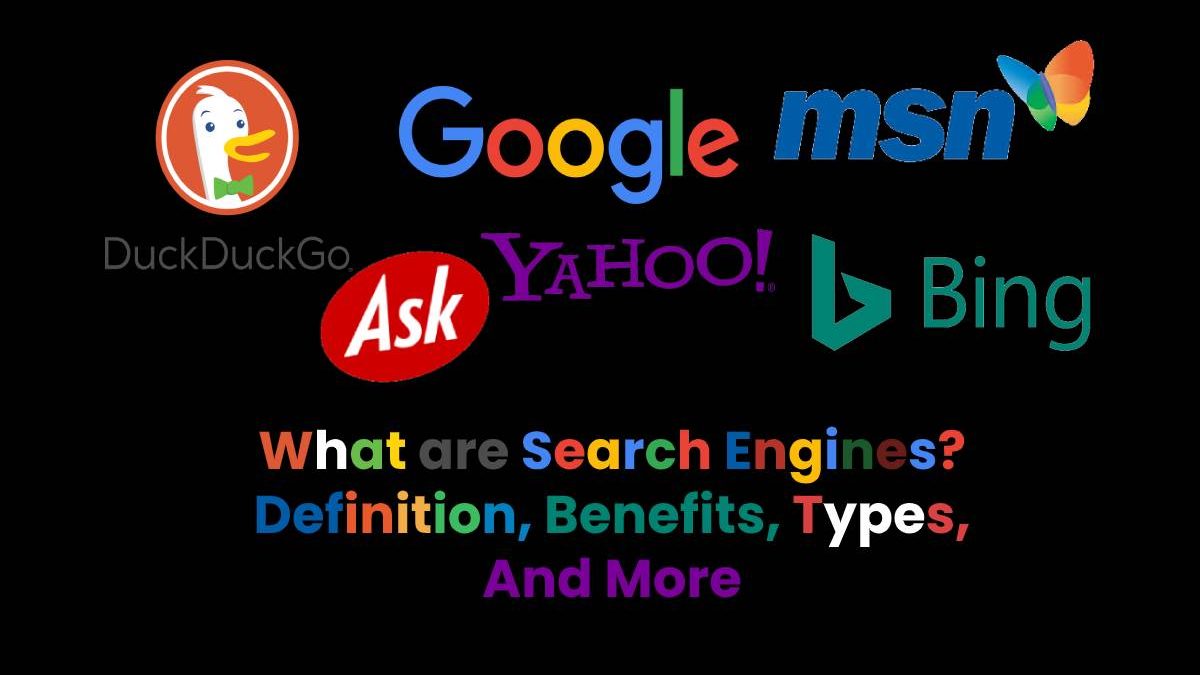Table of Contents
Definition Search Engines
Search engines are mechanisms that organize and distribute the information produced on the network to users who express their doubts based on keywords in these engines.
It is a mechanism that collects the information available on web servers and distributes it to users through the crawling process, in which search engine spiders map the data stored on the network.
The web browsers resort to identifying the keyword used by the person searching, and as a result, the user gets a list of links that direct to websites mentioning topics related to the keyword.
Benefits
Internet: it is Lord of today, master of information, the fastest and most efficient tool for discoveries, and who today mainly covers communication.
With so many tasks to perform, he had no choice but to divide roles. From there to the search engines, a method that facilitates us to find information quickly. On the other hand, beyond personal interests, there are also commercial interests. Our brands, businesses, companies fit in this segment, which survives thanks to the movements they make on the Internet.
In this way, the attraction for knowing about SEO strategies in Content Marketing has emerged, to name just one example.
Although, when it comes to it, the first and almost the only one that comes to mind is Google.
When other it can move our brand and business sites incredibly and that we are wasting their potential for lack of knowledge.
That is why we are going to present now the broad universe of search engines and how to explore them to improve your digital presence.
Types
The main types of internet search engines are the following:
- hierarchical search engines;
- directories;
- metasearch engines;
Hierarchical search engines
These types of [search engines] are textual interrogation interfaces. They check the databases of web pages through their spiders, and they collect information about the content compatible with the user’s search.
Once they make the query, they classify the results by relevance to the specific search and according to the user’s browsing history.
Directories
Directory type [search engines] are links to pages that are grouped by category. They are simple but require human support and continuous maintenance to function.
These web [search engines] do not browse the sites or store the content, they only group links by category and are organized by publication date and not by relevance or concordance with a search made by the user.
An example of this internet search engine is the Open Directory Project, also known as Dmoz.
Metasearch engines
These interfaces work by forwarding searches to multiple search engines at the same time.
In other words, they refer the query to other sites to analyze the results they present, to expand the range of the same products, present their conclusions and order the links according to the order defined by the metasearch structural system.
An example of a metasearch engine is Dogpile.
How many search engines are there?
It is tough to ignore the powerful Google in the first place to search. However, beyond Google, there are endless internet search engines.
There are hundreds of search engines worldwide. Among the main internet [search engines] available today are the following:
- Yahoo!
- Bing
- Ask
- AOL
- Go
- Live
- Snap
- AURA!
- Duck duck go
- MSN Search
- Yippi
- Boing
- Dumbfine
- GoYams
- MetaGlossary
- PlanetSearch
- SearchTheWeb2
- Terra
- Web 2.0
And many more!
That without even mentioning the search engines that once existed as Altavista.

